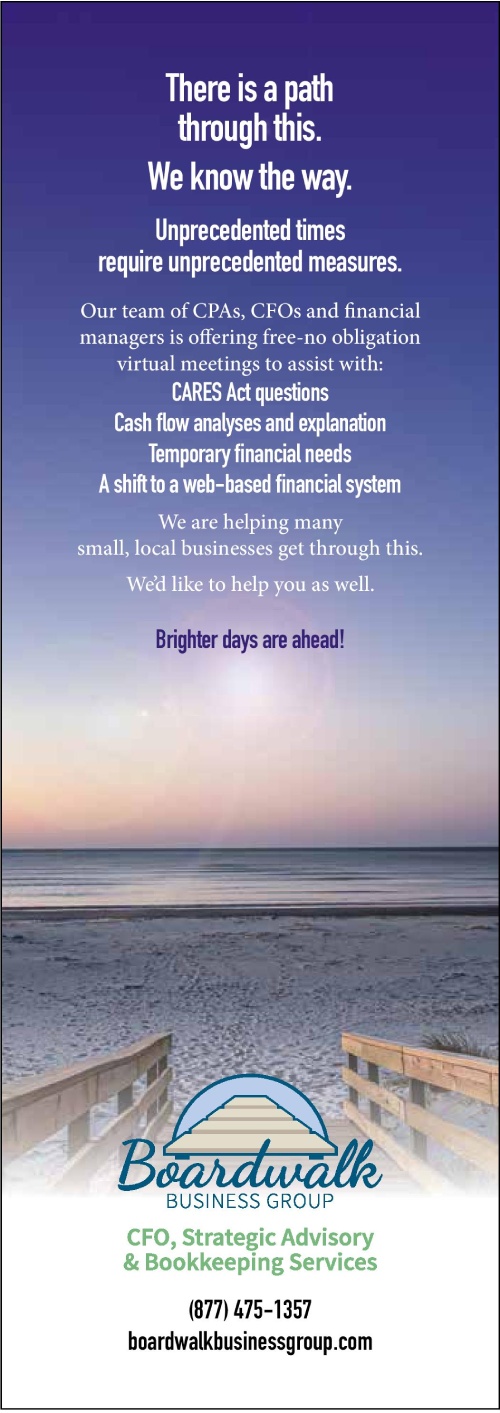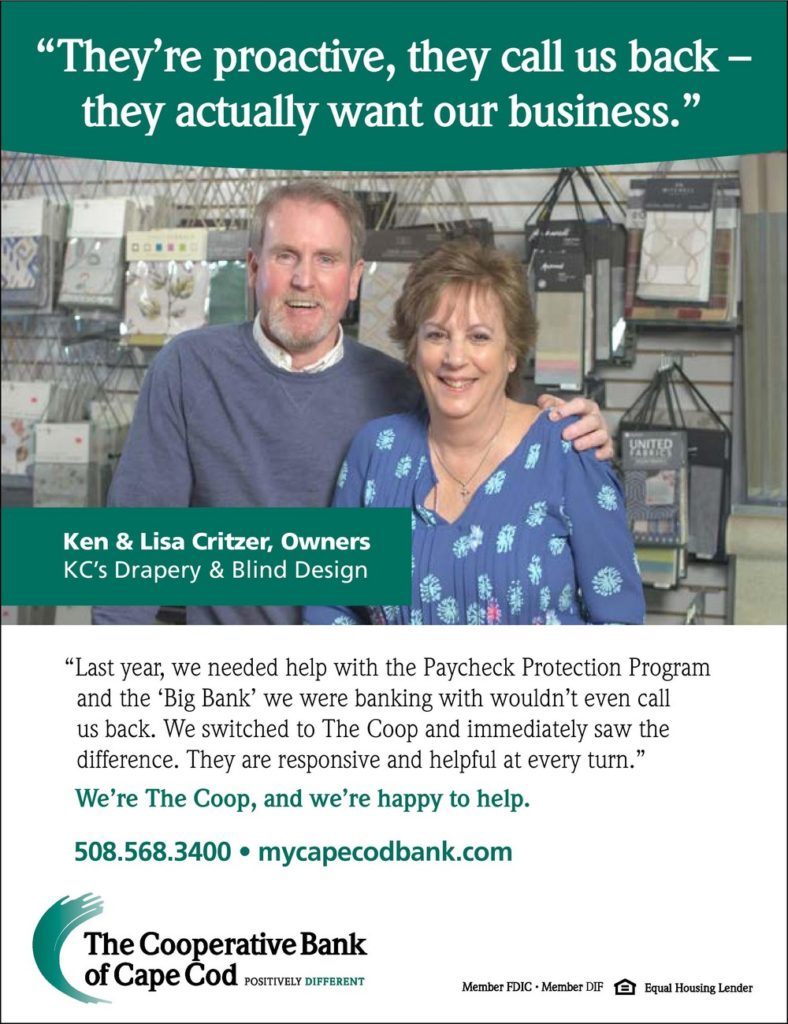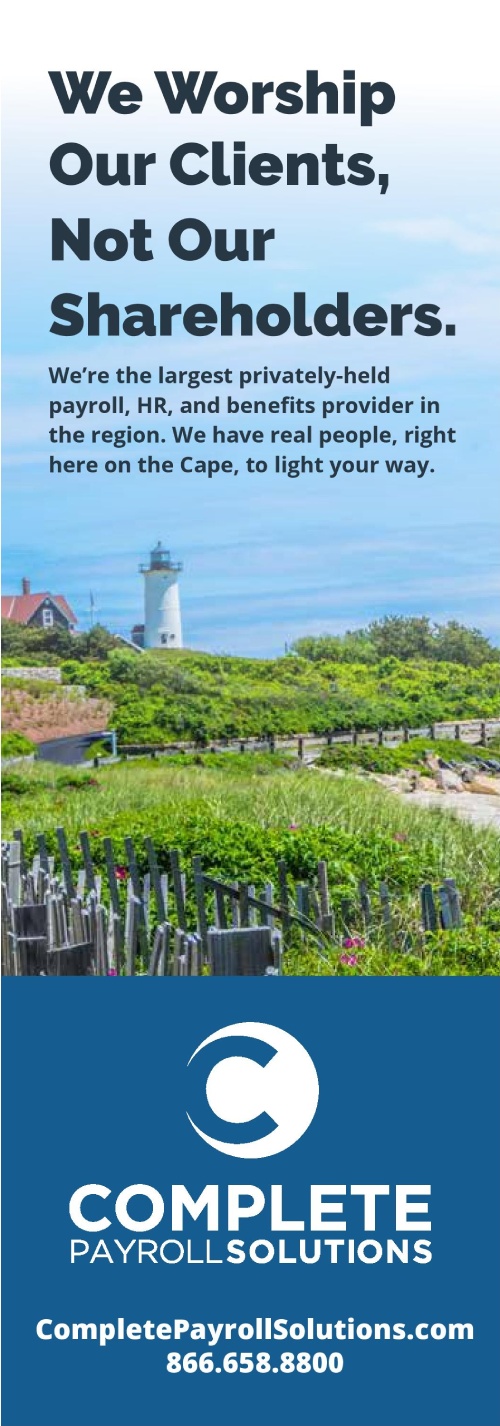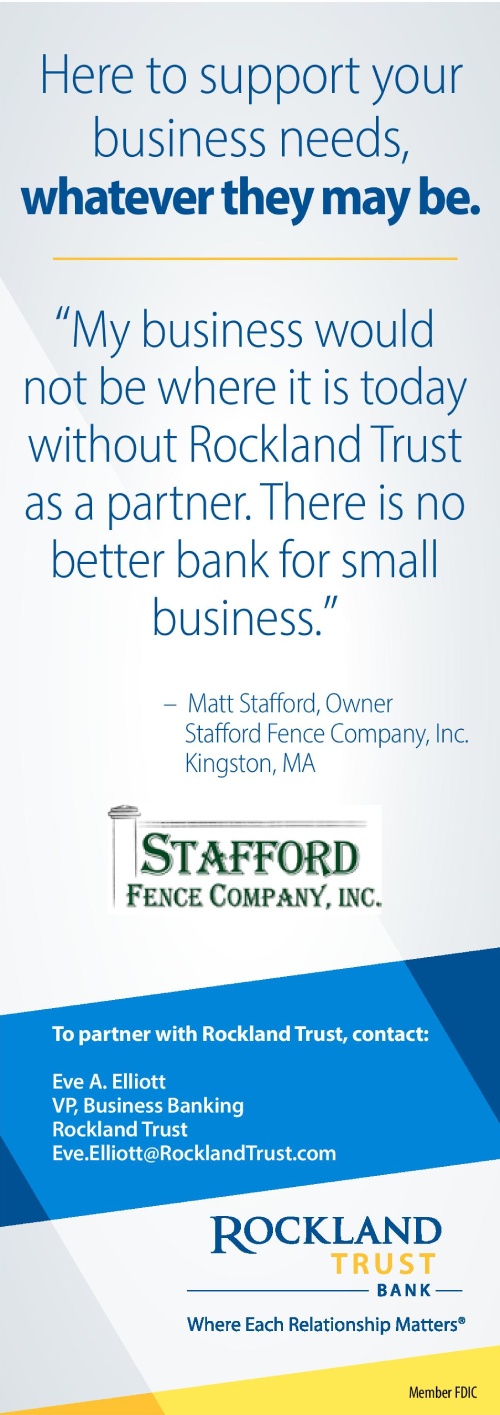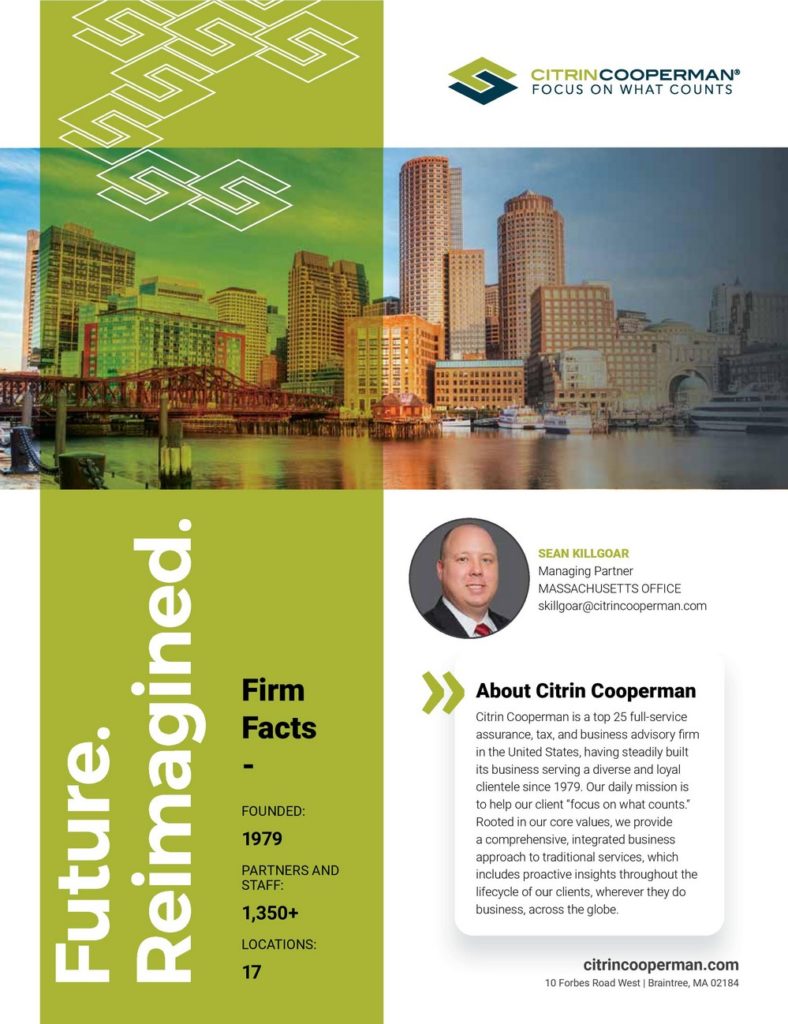
Signs Of Life
Spring came earlier this year, on the calendar, that is, and after the dark days of winter, we’re all looking forward to warmer weather, but more importantly, a return to some sort of normalcy.
We’re used to the long off-season here on Cape Cod but this spring, we’re looking forward even more to turning the page on bleak 2020. While the pandemic is still out there, businesses, (yes!) are opening up, albeit cautiously and with health and safety protocols in place.
The airline industry was one of the many sectors affected by the pandemic.
According to Airlines for America, a nonprofit that tracks industry data, U.S. passenger service incurred $35 billion in net losses last year, as people were unable to travel when countries closed their borders. Air cargo actually made a profit, as our demand for goods didn’t decline. However, the sector has a long way to go to recover its losses.
Locally, Cape Cod’s regional airport is seeing more passenger bookings, as more people are vaccinated and travel restrictions ease up. The former Barnstable Municipal Airport is in the midst of a master plan revision and has rebranded itself as Cape Cod Gateway Airport. Check out their future plans in this month’s cover story.
As always, we appreciate your feedback, story ideas and if there’s a topic you’d like to write about, please email us as news@capeplymouthbusiness.com
Thanks for reading!
Carol K. Dumas, Editor
Dale Shadbegian, CEO
BY THE NUMBERS – Travel Season Is Ramping Up
COFFEE BREAK – Consultants Can Help With College Admissions
ANYTHING BUT ORDINARY – Michele Insley
MARKETING – How To Get Found In Google
FEATURE STORY – ‘Mom On the Go’ Brings Comfort Foods To You
BUSINESS TOOLBOX – Financial Planning
LAST WORD – Tips for Speaking Up, Stepping Up, and Managing Up
BY THE NUMBERS
With spring here and warmer temps soon to follow, one big question on everyone’s mind could be, “Will we be able to travel this summer?” According to the American Hotel and Lodging Association (AHLA), the answer appears to be yes.
Heading into 2021, consumers are optimistic about travel, with 56 percent of Americans stating they are likely to travel for leisure or vacation this year, according to the AHLA’s 2021 “State of the Hotel Industry” report. People are planning vacations now for spring, summer and into the later part of the season.
In the year ahead, Americans say they are most likely to travel for a family event such as a wedding or family reunion (51% likely to travel), while many are likely to travel over summer holidays, led by the Fourth of July (33%) and Labor Day (28%).
Here are some more numbers provided in the report:
34 – While 34% of Americans say they are comfortable staying in a hotel right now, nearly half say their comfort is tied to vaccination in some way: 20% will feel comfortable staying in a hotel again when a majority of Americans have received a COVID-19 vaccine; 11% will feel comfortable when COVID-19 vaccines are available to the general public; and 17% will feel comfortable when they are personally vaccinated.
62 – With 62% of consumers placing overall cleanliness in their top three factors when choosing a hotel, consumers are continuing to prioritize safety when traveling. This is up 24 percentage points over pre-COVID preferences and shows the importance cleanliness and safety protocols will continue to play in economic recovery both now and beyond the pandemic.
200,000 – In 2020, more than 670,000 direct hotel industry operations jobs and nearly 4 million jobs in the broader hospitality industry were lost due to the pandemic. This year, 200,000 hotel jobs are expected to be added – a positive sign that tourism is beginning to cautiously head in the right direction once more.
2023 – With continued restrictions and consumer unease, demand for business travel, as opposed to consumer travel, is not projected to return to 2019 levels until 2023. The third quarter in 2023 is expected to be the first quarter in which business travel demand is above the corresponding quarter in 2019, with room rate recovery lagging behind demand.
COFFEE BREAK
By Honoria DaSilva-Kilgore
College can significantly change the trajectory of one’s life. Yet, the college admissions process is not something most are familiar with.
The process is complicated. The more applicants vying for a finite number of spots increases college selectivity. That is why it is so difficult to get into the Ivies where acceptance rates are 4 percent to 9 percent. Being academically qualified is therefore just one factor.
Not all colleges can afford to give the same amount of aid. Funds are allocated according to budget constraints. Part of this formula will depend on the yield derived from its accepted student pool and determining who will be paying full price. Moreover, colleges are not need-blind in their evaluation. Some are. Of these, some meet full need. For high achieving students from non-affluent families, this is a game changer.
Financial need is determined by the Free Application for Federal Student Aid (FAFSA), which calculates need based on the parents’ finances. It generates your Expected Family Contribution (EFC). If your EFC is greater than the cost of attendance, you will get zero financial aid from that institution. If less, then you qualify for financial aid up to the amount required to bridge the gap. Regardless, all students are guaranteed a federal student loan yearly if they so choose.
Regardless, if you qualify for financial aid or not, submit your FAFSA on time. Many colleges will not consider you for merit aid without it. Merit aid, unlike financial aid, consists of scholarship and grants from the college. This is free money. It can be the difference for many families between being able to afford college or making a college that you may have thought out of reach financially a reality. Your odds for merit aid increase the better the fit is between the student and the institution. Figuring out what that means is the key. Evaluate your student as a whole, identify strengths and focus on exploring colleges where they stand out and their achievements and interests are valued. Once you have determined which schools to target, go visit them in person. Virtual tours do not compensate for the actual vibe obtained from visiting a campus in person whenever possible. Give yourself enough time to do this.
Lastly, parents need to know that high school guidance counselors are not researching schools or advising your student on where their best fit could be. They simply do not have the time. At best students get told to take the SAT (late junior year), are given names of a few websites for their own research and maybe attend a financial aid night senior year about the FAFSA. Even advice regarding picking classes is minimal, as long as grades are good enough. However, strength of schedule, and the classes themselves, coupled with good grades, equals more potential for merit aid later. That is one reason why it is important to start early. It is harder to level up later, and by senior year, it is too late. Extracurriculars are also important. Find your passion.
If you want better planning and more due diligence before committing to what will probably be the biggest financial investment of your life, after buying a home, then you should work with an Independent Educational Consultant (IEC) and start as early as possible. An IEC can help you make sure your student is taking the right classes, thereby building a strong foundation, show you how to use SAT scores as a tool to your advantage, schedule visits and interviews. More importantly, they help focus effort on colleges that academically, socially and financially are most appropriate, thereby putting your student in the best position to succeed in college and beyond.
Honoria DaSilva-Kilgore, Esq. who has been practicing law for more than 25 years, is founder of Personal College Counseling, Inc. in Raynham. For more information, call 508-622-5250, email nod@personalcollegecounseling.com or visit https://www.personalcollegecounseling.com.
TIDBITS

Ocean acidification has often been called climate change’s evil twin, and both global perils are so pervasive it can be hard to put them in perspective.
Seth Garfield found a way.
Many growers and towns on the Cape, and beyond, get the shellfish seed that drives their businesses and anchors their recreational harvest from A.R.C Hatchery in Dennis, noted Garfield, president of the Massachusetts Aquaculture Association. If Cape Cod Bay waters that feed ARC become more acidic, that could reduce or delay the growth of the seed that supplies hundreds of farms and dozens of towns.
“We depend on that hatchery,” Garfield said at an informational briefing last month when the state Commission on Ocean Acidification released an 84-page report outlining the scale and threats, and offering strategies to mitigate.
Although the consequences of ocean acidification haven’t manifested themselves at ARC, they are on the horizon.
“We are running out of time before the consequences of ocean acidification become truly catastrophic,” said Rep. Dylan Fernandes, a member of the 20-person commission.
Cape and Islands Sen. Julian Cyr, who also served on the commission, enumerated ways the report aims to get ahead of the growing specter. Recommendations include: fund research into the economic and ecological effects of acidification; develop a set of best practices; update nutrient pollutant regulations; create a Blue Community Program; increase monitoring; and create a permanent ocean acidification council.
Source: capecodfishermen.org
The Cahoon Museum of American Art in Cotuit has been selected to participate in the Museum Assessment Program (MAP), which is administered by the American Alliance of Museums (AAM).
MAP helps museums strengthen operations, plan for the future, and meet standards through self-study assessment and a consultative site visit from an expert peer reviewer.
The museum’s participation is made possible through funding provided by the Institute of Museum and Library Services.
The Cahoon Museum has chosen to do a MAP organization assessment in order to accomplish strategic planning and institutional advancement initiatives.
“I am thrilled to be participating in the American Alliance of Museum’s MAP organizational assessment, which I believe will strengthen the museum’s operations, allow us to be more strategic in our thinking, and have a broader understanding of our community’s needs,” said Executive Director, Sarah Johnson.
Since its creation in 1981, the MAP program has served over 5,000 museums. MAP is supported through a cooperative agreement between AAM and IMLS. For more information, including a complete list of museums participating in MAP, visit www.aam-us.org/map
SOURCE: cahoonmuseum.org
Citizens Bank has formed a partnership with Girls Who Code to help 10th, 11th, and 12th grade girls learn computer science skills to make an impact in their community while learning more about careers in technology.
The bank will sponsor the organization’s Summer Immersion Program (SIP), a free two-week virtual program where participants will learn to code in a supportive environment, gaining critical leadership skills.
The SIP virtual program will serve as many as 6,000 students around the world. It is open to rising sophomore, junior, and senior girls and no prior computer science experience is required. The organization will also release a self-paced program alongside the traditional virtual model—breaking down barriers for highest-need students to participate asynchronously with support from Girls Who Code teachers and coaches.
Computing skills are the most sought-after in the US job market, with demand growing three times the national average, yet the gender gap in technology and engineering is getting worse. Despite increased demand for STEM-related jobs, the share of women in the computing workforce has declined from 37 percent in 1995 to 24 percent today.
SIP is free and need-based stipends of up to $300 are available to those who qualify, in order to provide assistance in lieu of paid opportunities such as a summer job or a paid internship. Current 9th -11th-grade girls and non-binary students are eligible to apply. For the second year in a row, Girls Who Code will run their SIP virtually, citing significant gains achieved when it first ran online in 2020 in response to COVID-19. Students across the U.S. can apply online here.
SOURCE: citizensbank.com
Around the Region – Town of Provincetown
Source: census.gov/quickfacts and city-data.com
Form of Government: Open Town Meeting
Incorporated in: 1727
Demographics:
Total population: 2,642 (2010)
Female: 1,119
Male: 1,523
White: 2,390
Black: 58
Asian: 36
Persons reporting two or more races: 103
Hispanic or Latino: 130
Total housing units: 4,417
Family households: 23.1%
Average household size: 1.6
Median household income: $66,711 (2019)
Per capita income: $66,498
Mean travel time to work: 13.8 minutes
Educational Attainment (age 25+):
High school graduate: 95.2%
Bachelor’s degree: 55.4%
Graduate degree: 24.3%
ANYTHING BUT ORDINARY
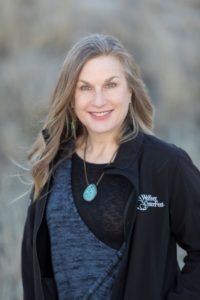 How did you get involved with Wellfleet SPAT/Wellfleet OysterFest?
How did you get involved with Wellfleet SPAT/Wellfleet OysterFest?
A non-profit professional, I learned about this open position from jeweler and former Wellfleet OysterFest Craft Show coordinator Deirdre Oringer. We met at Brewster in Bloom and, as we got to know each other, she told me that Wellfleet Shellfish Promotion and Tasting (SPAT) was looking for someone with my skill set. When the position was officially announced, I applied and was hired. If I hadn’t met Deirdre, I likely wouldn’t have known about the opportunity. That chance meeting was destiny!
What’s your favorite part of this job?
As executive director, I love that no two days at my job are ever the same. My responsibilities are varied and interesting, from planning festival logistics, educational or tasting programs, to telling stories about shellfishing over social media or leading a shellfish farm tour, to doing administrative work. This variety keeps me engaged and energized to show up each day!
How do you get people excited about Wellfleet SPAT/Wellfleet OysterFest?
We get people excited about the Wellfleet OysterFest by promoting the town’s exceptional oysters and clams. We promote the various shellfish farmers and wild harvesters who operate the raw bars showcased at the Fest. I think this is what excites people. There are not too many places where you can try a variety of shellfish and get served by the person who farmed or harvested them! They get to connect with the shellfishing community and ask questions. This is the ultimate way to know where your food comes from.
Do you know how to shuck your own oysters?
Yes! I did not know how to shuck when I first started with SPAT but I was committed to learn. I’ve watched many shellfishermen open oysters and made note of their various techniques. I’ve adopted the hinge-opening method. Now, any time I have people over or go to a party it’s expected that I will bring the oysters, so I get to practice. That’s the secret – practice! I’m not that skilled at opening clams yet so that’s my next challenge.
Are there events coming up that people should know about?
This summer, SPAT is planning to offer shellfish farm tours. It is a fantastic opportunity to visit a working shellfish farm and learn how oysters and clams are grown and harvested. Attendees also get to meet and talk to the shellfish farmer too. We are also working on a couple of other tasting programs and learning-to-shuck workshops. Visit wellfleetspat.org, and follow our social media pages, @wellfleetspat, for updates in the coming months for more details.
NEWS & MOVES
BayCoast Bank has promoted Carlos Viana of Fall River to vice president, Security.
In this role, he is responsible for security throughout the bank and its affiliates, including camera systems, fire alarms, perimeter and access control systems. His duties further encompass fraud management and development of all policies and procedures related to the bank’s security protocols and compliance with state and federal regulations.
Viana, whose previous title was Assistant Vice President, Security, joined the BayCoast Bank Security Department in January 2011.
Don Brookshire has been named director of operations for Chatham Bars Inn, where he will oversee all food and beverage, beach, pool, waterfront and boating operations at the resort.
A graduate of Florida’s Valencia College with a degree in Hospitality Management, Brookshire began his career in hospitality as a Restaurant Guest Service Manager at Disney World’s Animal Kingdom Lodge. He also managed the International Food and Wine Festival at EPCOT, served as Director of Food and Beverage at the Beverly Hilton in Beverly.
Hills, Calif., and also worked for the Waldorf Astoria, Park City, Utah; The Omni Nashville Hotel in Nashville, Tenn.; and most recently, as Director of Operations at The Plaza, New York City.
South Shore Staffing, the Canton-based staffing agency serving Southeastern Massachusetts including Plymouth and Cape Cod, has named Lisa Corrigan of Sharon its new president and chief executive officer. Corrigan will replace long-time president, Linda McDaid, who will remain at the company as a recruiting consultant.
Before joining South Shore Staffing, Corrigan was a business development manager for Nesco Resource, a national staffing and recruiting firm with more than 100 locations throughout the United States. Prior to this, she spent several years as a selling branch manager for KNF&T Staffing Resources. Overall, she brings more than 20 years of experience in the staffing industry to South Shore Staffing.
Peak Physical Therapy & Sports Performance has announced that Meghan Hesketh has joined the Hanover clinic as a physical therapist.
A resident of Westwood, Hesketh graduated from Sacred Heart University with a bachelor of science degree in Athletic Training in 2017 and a doctorate in Physical Therapy in 2020. Her clinical interests include evaluating and treating a variety of orthopedic and sports musculoskeletal injuries and return to play protocols.
Wendy Northcross, chief executive officer of the Cape Cod Chamber of Commerce, plans to retire later this year.
Northcross has led the chamber for 24 years. She will remain as chief executive officer while the chamber board of directors chooses a successor.
“Wendy has positioned the chamber for continued success, and the board remains grateful for her leadership and vision,” said chamber board Chair Linda Markham, president of Cape Air/Nantucket Airlines. “The board looks forward to finding a candidate who will best continue the chamber’s mission to strengthen, support, and promote the Cape’s cultural richness, environmental sensitivity, social needs, and economic viability.”
Resumes for the position can be submitted to CEOselection@capecodchamber.org
Sensible Medical (http://sensiblemedical.net), a Hanover distributor of medical grade air purification systems for hospitals, clinics and offices, announced that Steve Boutin of Hanover will lead the company as its chief executive officer.
In this role, he will oversee the Sensible Medical effort to market the company’s clean air solutions which are aimed at stepping up the fight against COVID-19.
Boutin is the former CEO of KidSense, a company that developed and patented a portable activity device created to help motivate hospitalized children to use their fine motor skills and mental acuity.
From 2002 to 2013, Boutin was a Regional Manager/Clinical Specialist for the Northeast USA and Canada with Surgical Specialties, Wyomissing, Penn., in the ophthalmic arena.
Peabody Properties announced that Patricia Juba of Taunton has earned a Certified Property Manager (CPM) designation through the Boston Chapter of the Institute of Real Estate Management.
Juba, who joined Peabody Properties in 2006, is a Senior Property Manager; she oversees a portfolio of 10 affordable housing communities that serve the homeless population as they transition into permanent housing.
Cape Cod 5 recently received its 10th consecutive “Outstanding” rating on its Community Reinvestment Act (CRA) Performance Evaluation, issued jointly by the Federal Deposit Insurance Corporation (FDIC) and Massachusetts Division of Banks (DOB). The bank has maintained an “Outstanding” rating since 1994, reflecting its record of meeting community needs over the past 26 years.
The CRA Performance Evaluation assesses the bank’s performance in providing responsive, innovative and flexible home mortgage, small business loans and community development lending; providing investments, grants and donations to support community development initiatives and promote services to low- and moderate-income individuals; and providing accessible and convenient banking services that effectively meet the needs of the community. An “Outstanding” is the highest possible rating that a financial institution can achieve and was assigned in under 10 percent of performance evaluations issued from 2010-2020.
Nicole Joy Hales of Plymouth has been promoted to the position of president at PRfirst. In this capacity, she will play a key role in overseeing the day-to-day operations of the 22-year-old public relations agency.
Hales previously served as vice president, client services. She joined PRfirst in 2011 as an account executive before being promoted several times. She also has decades of writing and editing experience, working for the Griffin Report and Plymouth Patch.
PRfirst President Jim Farrell, who founded the company in March 1998, will retain the title of founder and will continue his role in business development, account management and overall growth strategy for the firm.
BayCoast Bank has promoted Jared Mota of Warren, R.I., to assistant vice president, project manager and Project Management Office coordinator.
In this role, he is responsible for managing and coordinating key bank projects and oversees the coordination and completion of projects on time, within budget and within scope. In addition, he maintains and tailors the bank’s Project Management Program as required and provides guidance to key bank personnel regarding the Project Management Program.
Mota, who previously held the title of project manager and Project Management Office coordinator, joined BayCoast Bank in September 2018 as a Bank Secrecy Act merchant analyst. Prior to BayCoast Bank, he was an operations manager with East Commerce Solutions, Inc. in Providence.
North Easton Savings Bank has donated $10,000 to New Hope in Attleboro, in support of the organization’s new Emergency Shelter Capital Campaign.
Founded in 1979, New Hope is a non-profit organization working with those throughout south-central and Southeastern Massachusetts affected by domestic and sexual violence.
New Hope facilitates two confidential emergency shelters where clients receive crisis intervention, counseling, economic literacy training, financial advocacy, and case management. For more information visit new-hope.org.
Dr. Stephanie Prior, a board-certified family practice physician, has been selected as the Barnstable District Medical Society’s 2020 Community Clinician of the Year, an award recognizing her professionalism and contributions as a physician.
The Barnstable District Medical Society encompasses Cape Cod, Martha’s Vineyard and Nantucket.
Prior has many years’ experience caring for her patients both in the community health center setting, as well as her previous work in private practice in Bourne. She was also a long-time physician volunteer at Community Health Center of Cape Cod before joining their team as primary care provider in their Falmouth office. Prior to beginning her medical career on Cape Cod, she worked for 13 years at Greater Lawrence Family Health Center in Lawrence and helped start the family practice residency there.
Prior is affiliated with Falmouth and Cape Cod Hospitals.
She also volunteered as part of a team from Heart to Heart International, an organization that strives to strengthen communities by improving healthcare access, providing humanitarian development and administering crisis relief efforts worldwide using volunteers and partners. Prior was a volunteer in Haiti in 2016 and Puerto Rico in 2017 after the devastation of hurricanes Matthew and Maria.
Elaine M. Johnson Landscape Design of Hyannis has won a “Best Of Houzz” award for Customer Service on Houzz,® the leading platform for home renovation and design.
This is the ninth consecutive year that the firm has been chosen for this annual award. Customer Service honors are based on several factors, including a pro’s overall rating on Houzz and client reviews submitted in 2019.
NONPROFIT NEWS
North Easton Savings Bank has announced the successful conclusion of its fourth “A World for Good” community nonprofit voting campaign. The bank’s customers, social media followers and community members voted for a local organization of their choice. At the end of the campaign, a percentage of $5,000 is distributed to each organization based on how many votes each received. Some 3,800 votes in this campaign were received.
Beneficiaries of the fourth campaign included:
- Winslow Farm Animal Awareness (Norton), a nonprofit charitable organization devoted to the rescue and care of abandoned and mistreated animals.
- New Hope (Attleboro), an organization that works throughout south central and southeastern Massachusetts with those affected by domestic and sexual violence.
- Hugs for Mito, Inc. (South Easton), an organization formed to help mitochondrial disease and rare disease patients and their families cope and navigate serious illness and disability.
- Halifax VFW (Halifax), a nonprofit veterans service organization composed of eligible veterans and military service members from the active, guard, and reserve forces.
- NeighborWorks Housing Solutions (Brockton, Kingston, New Bedford and Quincy), the leading housing service provider in southern Massachusetts that builds and manages homes for people in need as well as provides a wide range of housing services
- South Shore Community Action Council (Plymouth), a private nonprofit organization providing a range of critical services to low-income individuals and families on the South Shore.
United Way of Greater Plymouth County has announced that Michael Gilbert, senior pastor of New Life Temple of Holiness in Brockton, and Greg Howell, president of Flexo Concepts in Plymouth, have recently joined its board of directors.
In addition to his role of senior pastor, Gilbert also serves as a teacher with expertise in youth outreach ministry. He has created several churches under his leadership and serves alongside his wife, the Rev. Eva M. Gilbert at New Life Temple.
Howell has spent the majority of his career in the flexo printing industry. In his current role he oversees the day-to-day operations of Flexo Concepts.
Champ Homes, a Hyannis-based non-profit providing transitional housing and support services to Cape Cod residents, recently received a $2,000 grant award from the Rotary Club of Hyannis Community Human Development Committee in support of their Transitional Housing Assistance Program.
Champ Homes’ ongoing mission is to provide transitional housing to adults on Cape Cod who are homeless or near homeless in a safe, compassionate, respectful environment, where they instill confidence and hope by providing life skills, mentoring, vocational opportunities, and self-advocacy. The goal of the program is to get clients back on their feet and to a place of regained self-worth and self-sufficiency. In 2020, of the Champ Homes’ participants who moved on from the program, 72 percent of them successfully transitioned to long-term sustainable housing.
A new partnership will bring the Fuller Farm in Marstons Mills back to its agricultural roots.
Barnstable Land Trust (BLT) and Resilient Roots will partner to bring a permaculture garden and educational programming to the farm. Resilient Roots is a local nonprofit whose mission is to teach people how to create landscapes that are productive and modeled after natural ecosystems.
In the coming months, Resilient Roots will plant a permaculture demonstration garden including a food forest on a three-quarter-acre area of Fuller Farm. This garden will operate as an educational model for regenerative gardening that supports pollinators, improves soil health, mitigates impacts of climate change and helps to feed the community.
Resilient Roots is led by Kristie Kapp, an ecologist and longtime farmer, West Barnstable resident, BLT member and leader.
Along with the permaculture garden and accompanying education, BLT hopes to create a pollinator field and space for sheep or other livestock grazing on the farm. The property includes 22 acres of fields and forested land, with walking trails throughout. The trails are open to the public. Plans are underway for improved parking, signage and kiosks to share the history of the Fullers, their farm and their role in the community.
The Cook Family Charitable Fund has received a pledge of $100,000 from The Frozen 4 Retail Marijuana Dispensary, scheduled to open its doors in Marshfield this summer.
According to Peter A. Cook, Sr., co-founder of The Cook Family Charitable Fund, the donation from Frozen 4 will be used to support the Fund’s online education course, “Substance Use and The Workplace,” and will be made available to businesses and Town of Marshfield employees.
The Cook Family Charitable Fund is a nonprofit organization founded in 2006 with a mission of raising funds for families dealing with cancer and substance use, as well as individuals with intellectual disabilities.
As part of Community Health Center of Cape Cod’s continued commitment to improve access to care for all in the community, the health center is now offering a convenient new telehealth tool called SmartExam.
Adult patients can access a SmartExam electronic visit from their MyChart account at any time, by completing an online exam that includes questions about their ailment. A health center provider will then review the exam during hours that the Health Center offers walk-in care (Monday through Thursday from 8 a.m. to 5:30 p.m. and Friday from 8 a.m. to 5 p.m.). Once the provider has reviewed and signed the exam, the patient will receive an email with their treatment plan, including prescriptions ordered if appropriate. Providers may also notify the patient directly if they determine an in-person or video visit is necessary to diagnose their ailment.
SmartExam is available for a wide variety of ailments including: acne, birth control, bladder infection (UTI), burn/sunburn, constipation, depression/anxiety, erectile dysfunction, ear pain, GERD, headache, low back pain, mastitis, mouth sore, rash, smoking cessation, sexually transmitted illness, sty/pink eye, upper respiratory illness, and yeast infection.
For more information visit www.CHCofCapeCod.org or call 508-477-7090.
Marshfield Youth Lacrosse’s leadership team will function in an advisory capacity to the Boys & Girls Club to assist with the transition and operations.
The kindergarten program is a skill-based development program with an emphasis on fun – from ground ball relay races and cradle tag to hungry hippos and more. Skills practices will be held once per week. Practices are one-hour long and will be structured primarily in a “station format” with all kids receiving equal instruction.
According to Jen Last, President of Marshfield Youth Girls Lacrosse, “We are happy to see the transition of the pre-K and K lacrosse program for the town of Marshfield move over to the Boys & Girls Club. The club is a great place to introduce the sport of lacrosse to our youngest players and we will continue to work closely with the club to ensure a successful transition.”
For more information, visit the https://www.bgcmarshfield.org
MARKETING
By Dale Shadbegian
SEO is an industry-defined acronym which stands for Search Engine Optimization. It’s defined by increasing the quantity of targeted traffic (or sales leads) to your website from Google and other search engines. The goal is to be found by people searching for your expertise and ultimately, create new sales opportunities for your organization.
SEO is more than haphazardly trying some different searches from your computer and adding text to your homepage and trading links with other websites. You see, Google indexes more than 30 trillion websites. There are industry standards and hundreds of checkpoints recommended for you to help Google better understand:
- Who you are
- Where you conduct business
- What you do or sell
This means if you want better traffic to your website you have to stay on top of all the ever changing guidelines that Google and the SEO Industry recommends.
Some of the tasks may seem trivial to the casual business owner. As SEO professionals, it is our obligation to be thorough and up to date on the latest guidelines. It can be the difference between getting found, being invisible, or getting suspended by Google.
Understanding Search Results
When you perform a search in Google, you will see at least three distinct types of results.
- Paid Ads – Based on how much you pay per click and some relevance
- Map Results (local listings or snack pack) – Purely based on distance from a location and relevance and trustworthiness
- Organic Web Page Results – Solely based on relevance and Worldwide – i.e., any given page on the Internet – but also trustworthy.
Map Results are the most clicked area, and the best place for a local business. Map Results level the playing field for local businesses. Some 80 percent of people do internet research before hiring a local company and this is the predominant method consumers employ to do that research.
To appear in Map results, you need a Google business listing. You must have a commercial address. Post Office boxes and business mailbox stores do not qualify.
Components To Local SEO
There are 10 critical and connected components to local SEO. Focusing only on some of these components will only give you some success.
- The Checklist. A SEO consultant’s ongoing checklist should touch all the components previously mentioned. Think of this as a physical from your doctor. Your results will only be as effective as the checklist itself, and following that checklist consistently.
- Keyword research. Google gives us a tool to actually see what people are searching for in your area. There are thousands of key phrases and combinations. You need experience to pick the best keyphrases that have intent. Here are some examples:
- Bad phrase: Drain cleaning (are they looking for a tutorial or a product?)
- Great phrases: Drain cleaning companies, drain cleaning companies near me, 24-hour drain cleaning, licensed drain cleaning, 24-hour licensed drain cleaning companies, etc.
You are thus looking at hundreds of combinations of words. Your base list for a local business should start with 10 to 30 keyphrases is paramount to the next components.
- Your website. There are hundreds of guidelines for your website related to the following:
- Great content containing your keyphrases, synonyms, imagery at a recommended density. No cramming or stuffing words.
- Code behind the scenes to help Google understand where you are located, what you do, and other factors including:
H1, h2, h3 tags
Images alt tags, descriptions, and captions
Meta tags
Schema
- A very strict set of technical and page speed suggestions. Your site might look fast to you, but it could be a big fat F to Google.
- Your Google business listing. Your verified Google business listing is a first line of defense to develop authority with google. You need to make sure every single piece of information Google allows you to enter is up to date and relevant to your keyphrases. You should be employing tools that provide Google My Business recommendations, such as changing descriptions adding photos, adding video and creating posts that are relevant to a business and reading up on the latest guidelines to make sure you’re giving the best to your clients.
- NAP citations and creating links. NAP stands for Name, Address, Phone. This is the next best way to show Google your business has authority on the Internet. Your name, address, phone has to comply with the U.S. Postal Service and has to be 100 percent correct EVERYWHERE that your business is listed. We manually build an average of 300 profiles over the first two years of local SEO work. These profiles can actually be changed without your knowledge, so they also need to be monitored. This is a HUGE ranking factor for Google. We use BrightLocal and a custom tool we developed to help locate and monitor NAP profiles for accuracy and availability.
- Getting reviews. Google likes reviews and it is a small part of how they rank results. There should be no dispute that a local business with 20 reviews averaging 4.7 stars looks better to a customer than a business with two reviews averaging 4 stars. SEO encourages long term growth of your reviews on Google, Facebook and Yelp. Yelp reviews are displayed in Maps and considered important to any SEO strategy.
- Google Analytics: This tool is jam-packed with data rich with opportunities to monitor and improve performance. You should be given reports and understand how your website is being used. The data is nearly endless and requires time to analyze every month.
- Google Search Console. The Google Search Console is another invaluable tool. It will give you security issues, penalty warnings, recommendations on your website as viewed from a desktop and mobile device, page speed, how your website is getting found in the search results, and how many people actually click to your site. There is a vast amount of data that should be used to fine-tune your overall plan for getting results.
- SERP Checkers. These tools give you an independent view of where you ACTUALLY rank for both desktop and mobile. If you aren’t using a SERP checker, you have no idea where you stand in Google. These tools also come with powerful audit software and website scans to give you over the top ideas to make your site better.
- Competitive analysis. A SEO professional should be identifying similar companies that appear in Google for your keyphrases, and deconstructing activities, content, NAP citations, and backlinks. They should be using that information to your benefit.
And that is how you get true results with SEO.
Dale Shadbegian is of Cape & Plymouth Business Media. He can be reached at dale@capeplymouthbusiness.com
SPOTLIGHT ON GIVING
261 Whites Path, Suite 1, South Yarmouth, MA 02664
508-362-1140
communityconnectionsinc.org
Year established: 1985
Individuals served: More than 800
Total number of employees: 310
Annual revenue (FY20): $15,000,000
Our mission is to provide life-enriching services that promote optimal independence for people with disabilities.
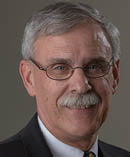
David Botting
PRESIDENT & CEO
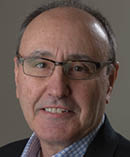
Sergio Balegno
CHAIRMAN OF THE BOARD OF DIRECTORS
Day Habilitation, Life Skills, Employment Services, Individual Supports, Transportation, Supported Living, Flower Angels
Cape Cod and Southeastern Massachusetts
COMMUNITY AID
We distributed $150,000 to the nonprofit organizations across Cape Cod who were best equipped to help during the pandemic.
We also have made $50,000 available via microgrants. The following is a list of the organizations we’ve helped so far:
• A Baby Center
• ALS Family Charitable Foundation
• Cape & Islands United Way
• Cape Cod Healthcare Foundation
• Cape Cod Literacy Council
• Champ Homes
• Community Health Center of Cape Cod
• Duffy Health Center
• Harbor Community Health Center
• Housing Assistance Corporation
• HOW-Helping Our Women
• Independence House
• Lower Cape Outreach Council
• Major Crisis Relief Fund (Needy Fund)
• Mass Appeal
• Neighborhood Falmouth
• On Provincetown, One Fund
• Outer Cape Health Center
• The Cape Cod Foundation
• Yarmouth Food Pantry
• YMCA Cape Cod
FEATURE STORY
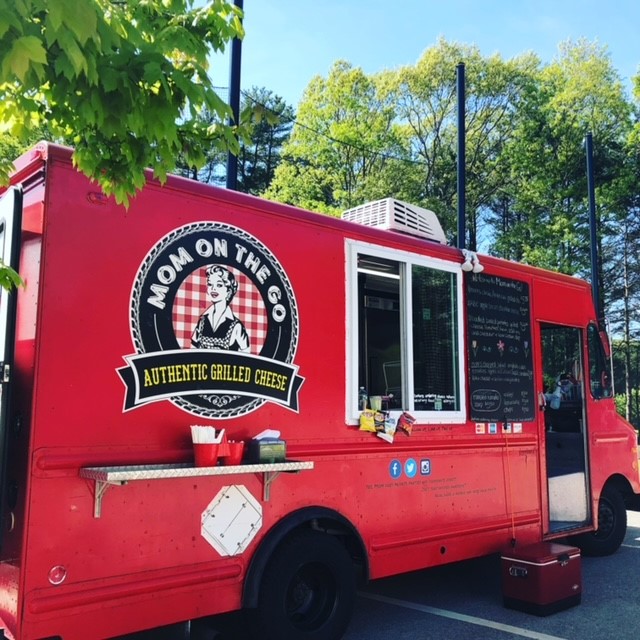
By Ann Luongo
Who doesn’t love comfort foods? They are, quite literally, the hot, homemade meals that make us feel, well… comforted. They’re the types of food we choose when we want to forego the calorie counting and opt to just enjoy a hearty, familiar, delicious meal.
June Somers took the idea of comfort food and brought it to another level – the food truck. She also took the idea of the most classic comfort food, the grilled cheese sandwich, and knocked it right out of the park. The result was the Mom On The Go Food Truck.
Somers, who had worked in the business world for 25 years, had researched the food truck industry for two years before she decided to take the leap.
“I bought my first truck in July of 2016 out of New Hampshire,” she said. “It had to be modified to fit Massachusetts code, and we were up and running by October of 2016. I decided on a grilled-cheese food truck because, who doesn’t love a classic grilled cheese?”
She also felt the truck and the menu allowed her to be creative, in the culinary sense. Over time, and with some experimentation, her grilled cheese menu evolved to include even more delectable options – and her customers loved them.
“Our most popular is the classic grilled cheese,” Somers said, “but we also have other rotating grilled cheeses such as the Loaded Baked Potato Grilled Cheese, Apple Bacon Cheddar Grilled Cheese, and Buffalo Chicken Grilled Cheese. We try to introduce new sandwiches all the time. We typically serve five or six different grilled cheeses at a time. We like to do seasonal varieties, as well, such as The Gobbler in November, Pumpkin Butter Grilled Cheese in October, and Corned Beef in March.”
Her food truck business, however, took a major hit with the arrival of the pandemic, just as she was preparing for a busy spring and summer season.
“In March 2020, my second food truck was delivered. Normally, in January and February, we book our season out through October, which we did. But as soon as the pandemic hit, all of those cancelled. Weddings, events, festivals, corporate lunches – all gone. We were looking at a completely empty calendar!”
Somers and her team were able to pivot and kept the original truck up and running, and started serving neighborhoods to survive.
“People were super supportive,” she said, “and soon we were doing three or four neighborhoods in a day. It’s a lot more labor-intensive to set up and break down three or four times a day (for less money, as well), but we did it and were happy to have the work,” she said.
By September, Somers found herself looking at her second truck with its big, beautiful new kitchen, just sitting there, and decided to start a new division of Mom On The Go – “Comfort Food Wednesdays.” It was a way for her to keep busy from October through March and keep revenue flowing over the winter.
“We make comfort food meals once a week,” she said. “People order by Sunday and we deliver on Wednesdays. We make lasagna, shepherd’s pie, beef and broccoli and, in March, corned beef and cabbage. We change up the meals for variety.”
Customers can pick up their meals at the Hanover location (46 Twin Fawn Drive) from noon to 5 p.m. on Wednesday, or they can have their food delivered to their home.
“I’ve been really surprised at how it’s grown! We make meals for two or four people. Now, we’re feeding 100 to 200 people per week. It’s been awesome and we are going to keep it going as a permanent division of Mom On The Go.”
Mom On The Go Food Trucks primarily serve the South Shore, from Plymouth up to Boston. Occasionally they will go outside that area for a large festival or event. During a typical year (without a pandemic) they can be found at music festivals, food truck festivals, weddings, birthdays, graduations, corporate events and more.
“We go year-round,” Somers said. “We move around, so we post on Facebook and Instagram where we are located. Since the pandemic, we’ve added that order-ahead element and people really like it.”
With so much gratitude for those who have continued to support the business, Somers and her team are only too happy to give back to the community where they can.
“We’ve been to Carolina Hill in Marshfield and we fed everyone for free, and we’ve done a few events with the Hanover Senior Center. In the fall, we had a free grilled cheese day,” said Somers. “I was finding that with the Comfort Food Meals, people were ordering for others, families with COVID, elderly relatives. So we asked the Hanover community to let us know if they knew of someone in need (COVID, financial or any other reason) and we would give away one of our meals. We’ve delivered over 50 meals for free to those going through a tough time. It’s been really fulfilling for us to help in that way. People can also donate any sum of money on our website to help with those donated meals.”
Somers is encouraged for 2021, saying while it still won’t be the same as previous years, they are already seeing an uptick in requests for their services on the truck.
“Our goal is to keep both trucks busy and keep the Comfort Food Meals growing!” she said.
COVER STORY

By Carol K. Dumas
It’s a new year and a new name for the Cape’s regional airport.
The former Barnstable Municipal Airport was renamed Cape Cod Gateway Airport at the beginning of 2021, to emphasize its regional significance as a commercial and transportation hub.
The airport has grown from humble beginnings in 1928 as Hyannis Airport with a single grass runway before being taken over by the Town of Barnstable in the 1930s. During World War II, it was expanded to three 4,000-foot runways for the Army Air Corps and used by aircraft on anti-submarine patrol. The Navy later assumed control of the airport for pilot training. After the war, the airport was returned to the town as a two-runway, municipal airport, serving all of Cape Cod.
Since then, as Cape Cod’s population became more year-round than seasonal, the airport has evolved to serve commercial and passenger needs for the region, especially to the islands of Nantucket and Martha’s Vineyard. In addition, airlines provide service to major airports, including Logan International Airport in Boston and JFK in New York in summer. The pandemic also fueled the need for the airport to accommodate the growing number of new year-round residents who moved here to work from their seasonal homes as urban offices closed.
However, continued competition from other regional airports has been a concern. Recent studies (2018-2019) showed approximately 215,000 Cape Cod residents still use off-Cape airports, and another 200,000 arrive on Cape Cod, again using off-Cape airports. The airport’s Business Plan and Marketing Plan goals, developed in June 2018, are to identify better opportunities to accommodate these Cape Cod residents.
“As part of the 2018 Airport Business Plan and Marketing Plan, four main goals were identified: to maximize general aviation activity at the airport, diversify airport revenue streams, become a regional air transportation leader, and enhance the airport image and branding,” said Katie Servis, airport manager. “Because goals, objectives, and tasks overlap from one fiscal year to the next, the aim is not to achieve 100 percent completion within a given fiscal year but to make a concerted effort within the fiscal year across all four goals. Priorities are selected at the beginning of each fiscal year to focus efforts.”
Some recent accomplishments included:
New tenants, leasing airport property and other assets (meeting diversify airport revenue streams goals)
Adding Southern Airways Express to provide passenger air service to the Cape and Islands as the newest airline offering commercial service to/from the airport
Rebranding with new name and logo (meeting enhance the airport image and branding goals)
“We are going through a lot of change and it is so exciting,” Servis added.
Master Plan Update
In addition, the airport is continuing to develop and update the Airport Master Plan, a comprehensive study of the facility that will describe the short-, medium-, and long-term development plans to meet future aviation and community demand. The plan is required by the Federal Aviation Administration, which funds 90 percent of the plan. The plan will make recommendations for promoting compatible land use around the airport. An environmental review will be required. A project stakeholder group comprised of more than 40 representatives of airport tenants, users, Town of Barnstable officials, Town of Yarmouth officials, businesses, chambers of commerce, the Cape Cod Commission, civic associations and more will meet over the course of the project to provide feedback and insight for the airport and consulting team as the project is developed. The public will be involved at key points in the plan.
While the airport would like to increase its revenue and accommodate more travelers, no new runways are being considered, although a runway extension is planned to provide operational flexibility for both existing general aviation and commercial aircraft. In addition a longer runway would also allow existing users (both commercial and general aviation) to fly to destinations outside of the Northeast and also within enhanced safety margins during winter weather as Cape Cod looks to enhance year-round viability beyond just the summer season. Community residents and businesses have also reached out to the airport about providing more service.
The master plan will also address the airport’s continued contribution to reducing its carbon footprint. The airport has installed a 20-acre solar arrays field and improved stormwater infrastructure, upgraded street and parking lot lighting and leased facility lighting to energy-saving LED. Insulation in leased facilities was also upgraded and a centralized aircraft washing and de-icing pad that drains to the Barnstable Wastewater Treatment Plant was also installed. The airport is currently working with the Cape and Vineyard Electric Cooperative (CVEC) to install solar canopies in the main terminal parking lot and more electric vehicle charging stations, further reducing its carbon footprint.
Greener Pastures
Cape Air President Dan Wolf is looking forward to continued improvements at Cape Cod Gateway, especially ones that address its carbon footprint.
Cape Air has been a regional leader in sustainable business practices. The company is a net zero electricity user in Barnstable, saving over $1 million between 2010 and 2020. Last year, Cape Air subsidized employees’ purchases of electric vehicles, installed on-site charging stations and paid for a year’s worth of their employees’ vehicle charging. Their sustainability program also includes recycling programs and changing the fuel injector nozzles on its Cessna 402 aircraft to reduce fuel burn.
In 2012, Cape Air was awarded the 2011 Environmental Merit Award from the Environmental Protection Agency. The award recognizes the outstanding environmental advocates who have made significant contributions toward preserving and protecting natural resources.
While the airport was deemed an essential service during the pandemic, passenger service dropped. Cape Air revenues ($35 million plus annually) were hugely impacted by the decline in air travel during the pandemic but with help from the federal government none of its 700 employees nationwide, 350 in Massachusetts, lost their jobs.
Wolf is seeing a growing interest in traveling and advance bookings as summer approaches. The airline has added 20 new, larger aircraft, the 11-seat Tecnam P2012, called the Traveller, to its fleet. The Traveller is equipped with the latest avionics from Garmin and has more passenger leg room. Eventually, it will replace the fleet of 92 Cessna 402Cs. The Cape Air fleet also includes four Britten-Norman Islanders.
“We know and love this market we serve and look forward to serving it in the future,” said Wolf.
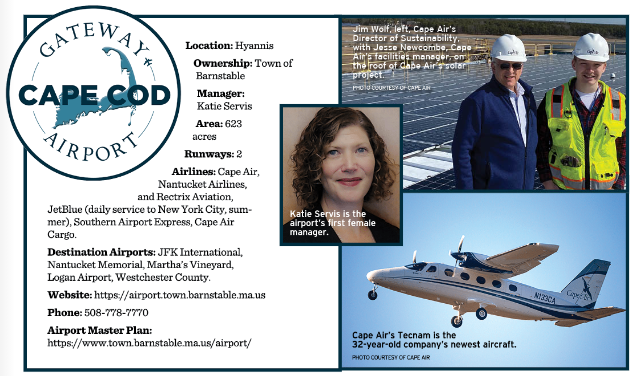
BUSINESS TOOLBOX
By Robert Martin and Brian Tuttle
If we’ve learned any lesson over the past year, it’s that no matter how carefully we plan and prepare, we’ll likely encounter unexpected hurdles. While a global pandemic has certainly underscored the need to pay close attention to our physical wellness, it has also revealed the need to shore up our financial wellness.
What Is Financial Wellness?
The Consumer Financial Protection Bureau (CFPB) defines financial well-being as:
Having control over day-to-day and month-to-month finances. In order to achieve this, your expenses need to be lower than your income.
Maintaining the capacity to absorb a financial shock. This typically refers to having adequate emergency savings and insurance.
Being on track to meet financial goals, meaning you have either a formal or informal plan to meet your goals and you are actively pursuing them.
Having the financial freedom to make choices that allow you to enjoy life, such as a splurge vacation.
The CFPB has identified several key factors that contribute to an individual’s ability to achieve financial well-being. Among them are: (1) having the skills needed to find, process, and use relevant financial information when it’s needed; and (2) exhibiting day-to-day financial behaviors and saving habits.
Assistance Available
Many employers have begun offering financial wellness benefits over the past decade. These programs have evolved from a focus on basic retirement readiness to those addressing broader financial challenges as health-care costs, general finance and budgeting, and credit/debt management.
If you have access to work-based financial wellness benefits, be sure to take time and explore all that is offered. The education and services can provide valuable information and help you build the skills to make sound decisions in challenging circumstances.
In addition, a financial professional can become a trusted coach throughout your life. A qualified financial professional can provide an objective third-party view during tough times, while helping you anticipate and manage challenges and risks and, most important, stay on course toward a comfortable retirement.
Robert Martin and Brian Tuttle are registered representatives of Infinex Investments Inc. and Investment Executives with Cape Cod Financial Services located at The Cooperative Bank of Cape Cod. They can be reached at rmartin@infinexgroup.com and btuttle@infinexgroup.com.
—
Investment and insurance products and services are offered through INFINEX INVESTMENTS, INC. Member FINRA/SIPC. Cape Cod Financial Services is a trade name of the bank. Infinex and the bank are not affiliated. Products and services made available through Infinex are not insured by the FDIC or any other agency of the United States and are not deposits or obligations of nor guaranteed or insured by any bank or bank affiliate. These products are subject to investment risk, including the possible loss of value.
By Kathleen R. O’Toole
The American Rescue Plan (ARP), passed on March 11, is a comprehensive and dense piece of legislation. While the major headline of the ARP is the direct stimulus checks to individuals, the ARP also includes a number of lesser-publicized provisions that concern businesses both large and small. Below are two important aspects of the ARP of which employers should be aware.
The ARP extends and expands payroll tax credits for employee paid leave under the Families First Coronavirus Response Act (FFCRA).
Under the FFCRA, which was passed at the very beginning of the COVID-19 pandemic, employers with fewer than 500 employees were required to provide up to two weeks of paid leave under the Emergency Paid Sick Leave Act (EPSL) and up to 10 weeks of paid family leave under the Emergency Family and Medical Leave Act (E-FMLA) to employees who were unable to work for certain COVID-19 related reasons. This meant that many employers who were ordinarily not subject to the Family and Medical Leave Act (FMLA) were required to provide leave pursuant to E-FMLA. To offset this new, expanded leave requirement for so many businesses, the FFCRA provided employers with a corresponding payroll tax credit which offset the employer’s costs for providing the paid leave.
While the FFCRA requirement lapsed on Dec. 31, 2020, a combination of the ARP and the stimulus legislation passed in December of 2020 extends the availability of employer tax credits for FFCRA leave through Sept. 30, 2021 for employers who chose to voluntarily provide the leave.
Moreover, the ARP expanded the grounds for which employees could take E-FMLA leave. Prior to April 1, 2021, the only basis for taking E-FMLA was a need for leave to care for the employee’s child, if the child’s school or place of care was closed, or the childcare provider was unavailable due to a public health emergency. Under the ARP, E-FMLA leave can also be taken for the same reasons as EPSL leave, which is much broader. These reasons include, for example, experiencing symptoms of COVID-19, or being required a quarantine for concerns related to COVID-19.
Under the ARP, employers can also receive payroll tax credits for providing either EPSL or E-FMLA leave to employees for these additional reasons: (1) because the employee is seeking or awaiting a COVID-19 test or diagnosis because the employee was exposed to COVID-19, or the employer has requested the test; and (2) because the employee is obtaining a COVID-19 vaccination or is recovering from an injury or other condition related to receiving the vaccination.
While the FFCRA remains voluntary, businesses may find the corresponding tax credits to be a benefit for both their own finances and for their employees. The paid leave could be used as an incentive to urge employees to be vaccinated, for example. The tax credits may also assist employers to cover the costs of leave as employees’ needs for COVID-19-related absences continue into 2021.
On the other hand, detailed guidance and/or regulations concerning this voluntary leave is not yet available, and implementing these policies on a voluntary basis could involve some risk if not implemented appropriately. To protect their entitlement to the applicable tax credits, employers choosing to voluntarily implement FFCRA leave policies should be careful to apply them uniformly, and that any such policies are in compliance with any available DOL guidance or regulations.
COBRA Premium Assistance Benefits.
COBRA is a federal law applicable to employers of 20 or more employees. It generally allows eligible employees to elect to continue health insurance coverage for themselves and their dependents in the event of a job loss or a reduction of hours. Ordinarily, this coverage can continue for up to 18 months. Importantly, premiums are paid at the employees’ own expense, and they can often be relatively expensive.
The ARP provides some relief to employees struggling with COBRA premiums. Under the ARP, COBRA-eligible employees who have been terminated or subjected to a reduction of hours can forego paying the monthly premiums for a six-month period: from April 1, 2021 through September 30, 2021.
Because the program incorporates employees who were terminated or were subject to an hours reduction prior to April 1, 2021, individuals who became eligible for COBRA coverage as far back as November 2019 could qualify for this new program. Deadlines to select COBRA coverage have also been extended. For example, an employee who was terminated in 2020 and declined to purchase COBRA coverage may now be eligible to elect COBRA coverage in 2021.
Moreover, businesses who provide COBRA continuation coverage to eligible individuals under the ARP program will be reimbursed for the unpaid premiums by a dollar-for-dollar tax credit toward the payment of quarterly employment taxes equal to the amount of the unpaid premiums.
Importantly, this program does include some notification requirements for employers. Businesses must notify eligible employees of the availability of premium assistance. The U.S. Department of Labor (DOL) has been charged with providing model notices for this purpose by no later than April 10, 2021. Plan administrators must provide the notices to the eligible employees no later than May 31, 2021.
In addition, any employees who become eligible for COBRA between April 1, 2021 and September 30, 2021 – on top of being provided with the usual COBRA paperwork – must also be notified of the availability of premium assistance. It is unclear if the DOL will provide model language for this, but further guidance is likely.
Lastly, employers must also provide a notice to COBRA recipients as to when the premium assistance will expire. The notice must be provided within a specified time period leading up to the expiration. The DOL is expected to provide model premium assistance expiration notices by April 25, 2021.
In general, businesses that have provided COBRA notification rights to any employees between November 2019 and the present would be well-advised to keep a close eye on this new COBRA subsidy program. Aside from your counsel, oftentimes, your company’s health insurance broker will be a helpful resource for information.
These ARP programs are brand new and largely untested. As such, businesses should be on the lookout for published guidance and/or regulations from the DOL on both the FFCRA and COBRA issues discussed above, and consult with experienced counsel to review any compliance concerns.
Kathleen R. O’Toole, Esq., is a Centerville native, Dorchester resident, and partner at the Boston law firm of Conn, Kavanaugh, Rosenthal, Peisch & Ford LLP. Send questions to kotoole@connkavanaugh.com.
This column, which may be considered advertising under the ethical rules of certain jurisdictions, is intended as a general discussion of the topics covered, and does not constitute the rendering of legal advice or other professional advice by Conn, Kavanaugh, Rosenthal, Peisch & Ford LLP or its attorneys.
LAST WORD
By Rich DeRienzo, CPA, Partner and Assurance Services Leader, Citrin Cooperman
As the famed management consultant and author Peter Drucker once said, “Effective leadership is not about making speeches or being liked; leadership is defined by results, not attributes.” Well, leadership is also not defined by your place or your role in an organization.
As our careers evolve, learning how to lead effectively from different levels of an organizational structure is key to defining our success as both professionals and as leaders. One of the most difficult challenges, and when mastered, the most rewarding, is to figure out how to lead when you are working with colleagues in more senior positions. For many of us, our first instinct is to defer to another’s experience or position within an organization. While respecting seniority is an important attribute for success and harmony in the workplace, we should not mistake being respectful with being docile especially when we identify situations where we can shape positive results through speaking, stepping, and managing up, in a word leading.
When faced with this situation, it would be helpful to remember:
Leaders are truthful. Throughout our careers, we are expected to be thoughtful and creative, yes, but ultimately to execute and deliver results. In the early stages of our career, it can be very difficult to summon the courage and create the time to voice our opinions rather than simply executing on a task.
Leaders understand there are consequences to inaction. When faced with a potential issue, evaluate the situation and think of alternative solutions. If you see a better result that would improve the outcome, take the chance to make your opinions known, professionally and constructively. I can make a world of difference and potentially resolve or prevent an issue from happening.
Leaders know and act on their personal values. Being true to yourselves and your stakeholders means never compromising your own integrity or values by not speaking up.
Leaders are collaborative. Build relationships with key stakeholders and constituents. Obtain feedback and different perspectives. Learn to build consensus and support. There is strength in numbers and ownership in participation.
Leaders grow. Use your experiences to build your influencing or consultative skills. Watch how others influence and negotiate difficult situations and see if you can apply some of the same tactics. Learning how to integrate and address the other person’s perspective can only help you help them see how your perspective will help achieve mutually beneficial results.
Leaders promote and communicate clear expectations. Soliciting and gaining mutual understanding of the expectations and assumptions related to any activity will mitigate the risk of costly inefficiencies and poor relationships, morale, and motivation.
Leaders have confidence. Have you ever sat in a group meeting, thought of something brilliant, only to have someone else bring up the point after debating with yourself whether you should? The hardest part is opening up and taking the risk. Once you do it the first time, it will become much easier.
I know this is tough; though much tougher conceptually than it usually is in actuality. Over a thirty-plus year period, I have seen many people shy away from discussions that would have put to rest issues or avoided drama and trauma because of assumptions they made about the other person or the situation. More times than not, when the less senior person has taken the initiative to talk, they have walked away saying it was nowhere near as difficult as they thought it would be and that they should have done it much earlier in the process. As a person who has been on the receiving end of more than a few of these discussion, I have always walked away from those discussions (particularly when they were done respectfully, truthfully, and professionally) having learned something about myself and having an increased level of respect for the person who had the courage to speak and manage up.
Cape & Plymouth Business Media is a full service marketing firm with a dedication to building a thriving business community.
To contact us about our monthly or custom publications, sign up for our newsletter, connect on social, fund business events, or to be found on our network, please call 508-827-1065 or visit capeplymouthbusiness.com
Reproduction in whole or in part is prohibited without the written consent of the publisher. Although every attempt has been made to ensure accuracy of the content of
this magazine and advertisements, Cape Business Publishing Group LLC cannot assume responsibility for any errors or omissions including placement of advertisements.

